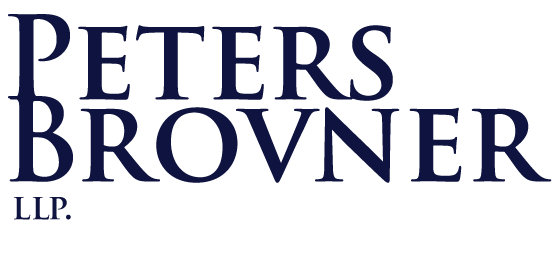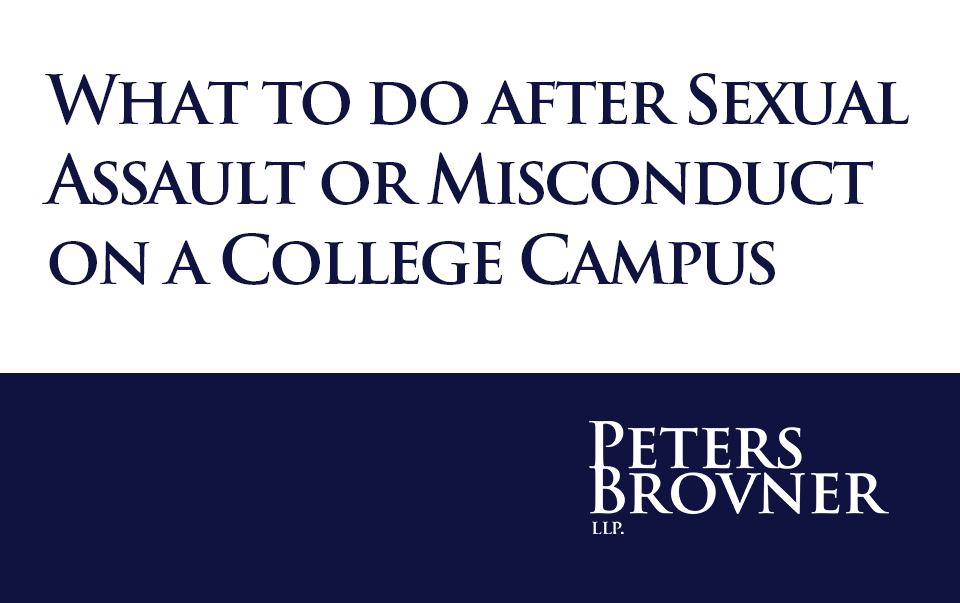Sexual Harassment in NYC Educational Institutions
Identifying Sexual Harassment in The Education Sector
Sexual harassment in schools and on campus is a fundamental civil rights issue: when students suffer sexual harassment, they are deprived of equal and free access to an education.
Title IX of the Education Amendments of 1972 is a federal civil rights law that prohibits discrimination on the basis of sex in any education program or activity that receives federal funding. This covers the vast majority of both private and public schools.
Title IX provides, “No person in the United States shall, on the basis of sex, be excluded from participation in, be denied the benefits of, or be subjected to discrimination under any education program or activity receiving Federal financial assistance.”
Title IX is an important mechanism available for students who want to combat sexual harassment at school and on college campuses. Under Title IX, discrimination on the basis of sex can include:
- sexual harassment (including sexual harassment based on sexual orientation or gender identity)
- rape
- sexual assault
How Can a NYC Sexual Harassment Attorney Can Help Victims In The Education System
The attorneys at the law offices of Peters Brovner LLP focus on holding City, State and private institutions accountable for actions that result in significant harm and personal injury, including failure to protect individuals from sexual misconduct.
If you or someone you know has been sexually harassed at an educational institution and you need legal advice, please reach out to the lawyers at Peters Brovner LLP for a consultation.
ph: 917-639-3270
email: info@petersbrovner.com
What Protections Are Granted Under Title IX?
Title IX prohibits sex discrimination in educational programs that receive federal funding, which includes almost all universities both private and public.
Schools are required by law to:
- Have internal Title IX complaint procedures to promptly and equitably resolve complaints (Cases of sexual violence may not be handled through medication; there must be a formal hearing process)
- Designate a Title IX office with at least one employee as the Title IX coordinator
- Make available its policies on sexual assault and harassmet, including its policies on how to make formal complaint
- Be responsive to complaints and take steps to prevent discrimination.
- Provide support and security for survivors of sexual violence
- Ensure that there is no retaliation again those making Title IX complaints
Requirements for Institutions When Sexual Harassment Is Reported
Once a school is made aware of a sexual harassment incident, colleges must take immediate steps to address the issue. The institution must also take actions to prevent the violence, harassment, or discrimination from happening again. These actions may include:
- issuing no-contact orders to the accused
- making reasonable changes to the schedules, housing arrangements, and/or extracurricular activities of the survivor; and
- otherwise protecting the right to an education free of violence, discrimination, or harassment.
If certain accommodations are deemed necessary, the school, not the complaining student, must pay all applicable costs.
When Is a School or University Liable for Sexual Harassment?
According to the federal Department of Education, schools have a number of obligations in regard to addressing sexual harassment:
- A school has a responsibility to respond promptly and effectively. If a school knows or reasonably should know about sexual harassment or sexual violence that creates a hostile environment, the school must take immediate action to eliminate the sexual harassment or sexual violence, prevent its recurrence, and address its effects.
- Even if a student or his or her parent does not want to file a complaint or does not request that the school take any action on the student’s behalf, if a school knows or reasonably should know about possible sexual harassment or sexual violence, it must promptly investigate to determine what occurred and then take appropriate steps to resolve the situation.
- A criminal investigation into allegations of sexual harassment or sexual violence does not relieve the school of its duty under Title IX to resolve complaints promptly and equitably.
Schools and Universities can, in certain circumstances, be liable for sexual assault that occur on campus. For example, liability may exist when a school:
- fails to provide proper student safety and security.
- fails to take action despite warning signs that a school-sponsored organization, such as a fraternity or sports team, engages in conduct involving sexual assault
- fails to respond appropriately after being warned that a student or staff member has threatened or harassed a student, or otherwise ignores reports of sexual assault or sexual harassment, they could be liable if a subsequent assault then occurs.
- admits a student who it knows has a history of sexual assault and allows that student to live in student housing or otherwise participate in certain other student activities.
Does A School Being Public or Private Affect Liability?
Title IX prohibits discrimination on the basis of sex in any education program or activity that receives federal funding. This covers the vast majority of both public and private schools in the United States.
Blog Posts
and Media

